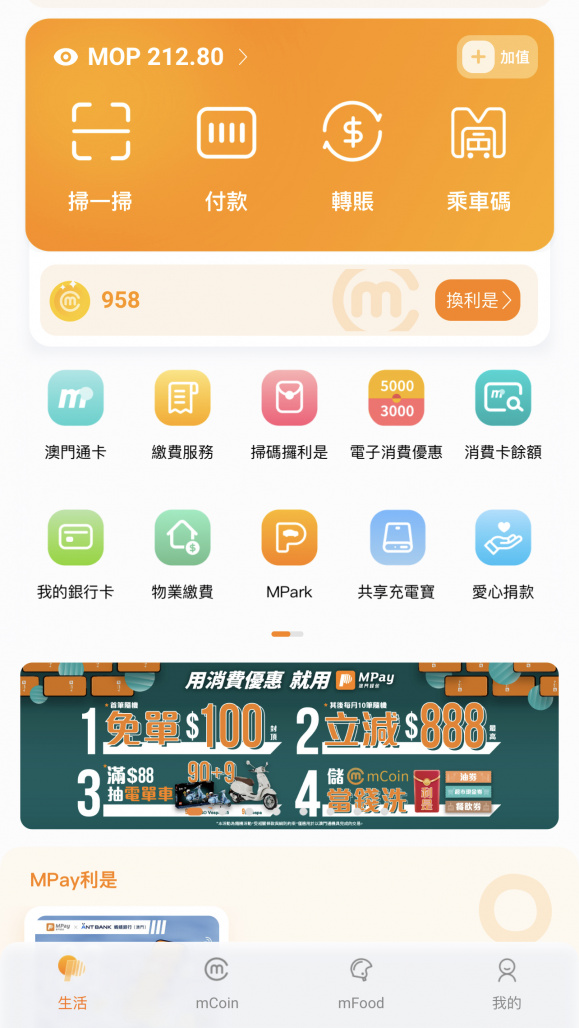Macau has experienced the ‘fintech flavour’ through electronic payments, but there’s more in the pipeline.
Macau Business | April2024 | Special Report | Modern Finance

Financial technology (better known as fintech) “is used to describe new technology that seeks to improve and automate the delivery and use of financial services. It means, according to Julia Kagan, Investopedia editor, “to help companies, business owners, and consumers better manage their financial operations, processes, and lives.”
Through specialised software and algorithms, that are used on computers and smartphones, fintech aims to improve customers’ connections with the financial world.
In this regard, Macau is a few steps behind Hong Kong, but the law that came into force on November 1, 2023 (the new Financial System Act) promises to speed up the process.
In addition to “building a more intricate e-commerce and digital payments ecosystem, paving the way for fintech advancements,” according to local lawyers Daniel de Senna Fernandes and Bruno Almeida of Riquito Advogados, “the new Financial System Act establishes essential regulations and, crucially, introduces a ‘banks with restricted activity scope” licence’.”
“This licence carves out a dedicated niche within the financial landscape, which is distinct from the comprehensive scope of traditional banking licenses. While the latter encompasses deposit-taking and a broad range of activities, the new licence restricts institutions to specific functions such as deposit-taking, loan provision, investment services, credit card issuance, and/or foreign exchange transactions,” according to the two lawyers.
Even before the new Financial System Act, several banks in Macau were already offering fintech services, and one of them, the Macao Development Bank, even declared itself, in 2019, as a bank with the ambition of “maintaining the dominance of Fintech and provide electronic financial platforms for our clients.”
“This licence carves out a dedicated niche within the financial landscape, which is distinct from the comprehensive scope of traditional banking licenses” – Daniel de Senna Fernandes and Bruno Almeida, Riquito Advogados
But it’s not just the small and newer banks that are making this bet. Bank of China Macau Branch (BOCM) is also a pioneer of digital banking in Macau, having embraced areas such as fintech. “BOCM is taking the lead in this area with the creation of BoC Pay, an online payment channel that supports Alipay, WeChat and UnionPay,” according to the World Finance website.
If there is one area where Macau residents have already felt the advantages of digital financial technologies, it is in electronic payments: over the past four years, the number of mobile payment transactions has skyrocketed: from 16.5 million in 2019 to 300.9 million last year (more 1,723 per cent).
And in this chapter, the pioneering role of Macau Pass, the most widely used e-payment system in Macau, since is the first third-party electronic wallet that supports multiple bank accounts and credit cards, and the first local company to sell, issue, and manage rechargeable contactless smart cards (MPay), deserves to be highlighted.
Over the years, Macau Pass has been at the forefront of this technology, highlighting, for example, the partnership with the Hong Kong-based Fintech leader Wallyt, which integrates many of the local and international payment methods in Hong Kong, like WeChat Pay, Alipay, UnionPay International, BoCPay, Octopus, FPS, and serves more than 30,000 merchants.
“We believe that the debut of MPay has further transformed the city into an advanced fintech hub,” says the local company. “Currently, we focus immensely on building an ultimate hybrid platform combining payment services, multimedia marketing, and business networking altogether to create the most unique and excellent experiences for our users and clients.”
Experts hope the SAR’ new legal framework will pave the way for innovative projects emerging on the heels of new temporary licences (also known as sandboxes).
“[This framework] allows qualified entities from the scientific and technology world to enter the [Macau] market and tag along with insurers and banks to develop new products based on technology” – Carlos Eduardo Coelho, MdME
“[This framework] allows qualified entities from the scientific and technology world to enter the [Macau] market and tag along with insurers and banks to develop new products based on technology,” summarised lawyer Carlos Eduardo Coelho, partner of local law firm MdME, during the last forum organised by the Macau Insurance Industry Professionals Association (MIIPA).
“It takes time to develop these new projects, [but] at least now we’re giving opportunities to new players… to develop new solutions that are more cost-effective and customer-centric, marking a shift from traditional products seen in the market for years,” Carlos Coelho said.
In 2023, the AMCM launched the “Fast Payment System (FPS) Phase II”, which enriched the “Easy Transfer” service for local interbank transfers. The AMCM also introduced the “Monetary Bills and Notes Trading System” (MTS), providing a secure and convenient platform for transactions related to monetary bills. Furthermore, “the completion of the “Data Centre of Financial Infrastructure” ensures the stable and secure functioning of all financial infrastructural systems, states the regulator.
























